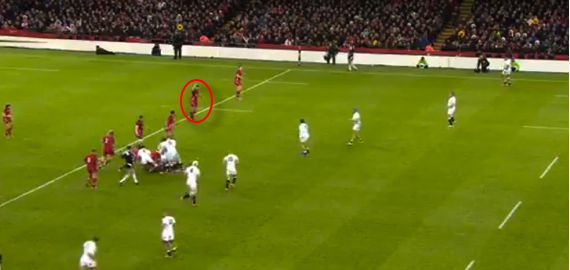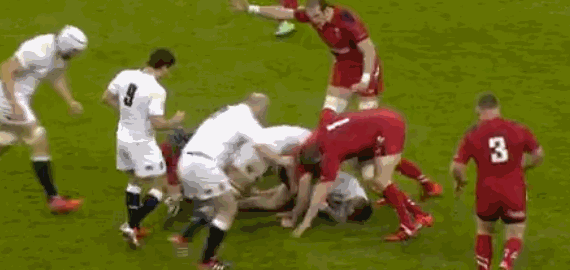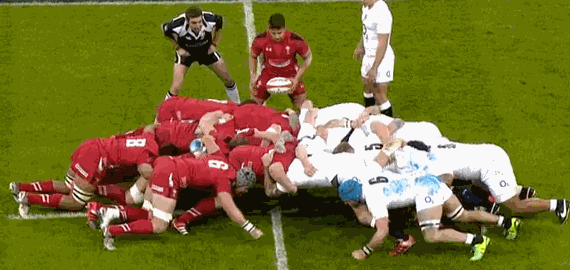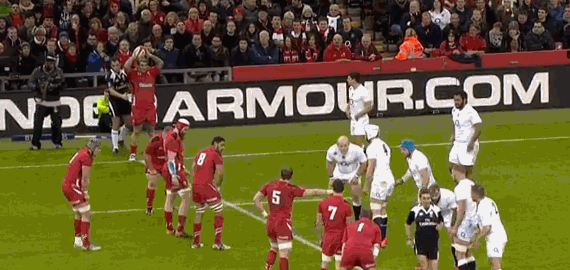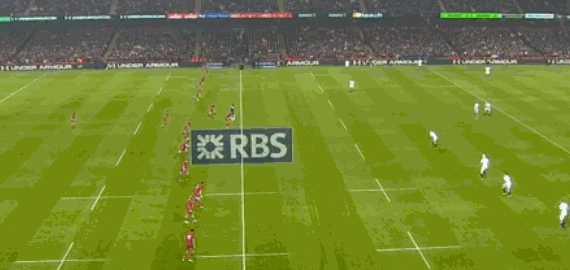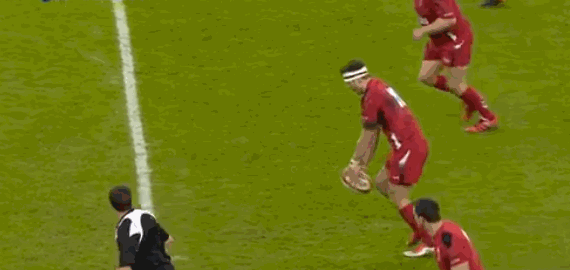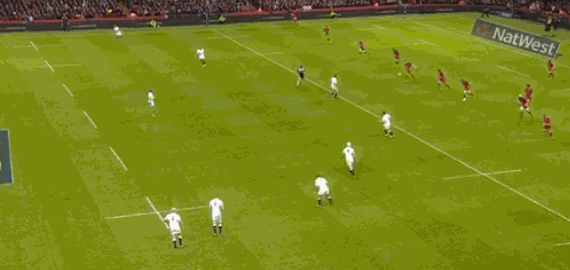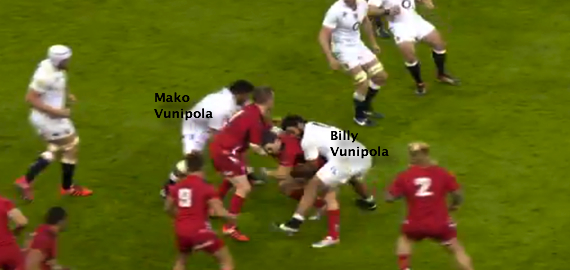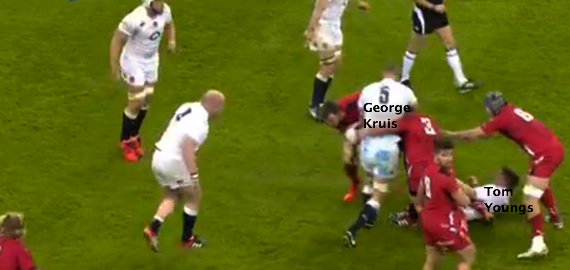Completing a superb second-half comeback across the Severn Bridge, England exorcised some demons in Cardiff on Friday night. Here are five areas in which they took they game away from Wales.
“If you look at the first ten minutes as we went 10-0 down, a lesser side would probably have crumbled. The crowd got pretty crazy at that point, but we stuck to our guns” – Chris Robshaw
Scar tissue can be pretty rigid. England have not hidden from the humiliation they experienced at the Millennium Stadium in 2013 when their Grand Slam shot vaporised dramatically in a 30-3 thrashing, preferring to portray it as a painful learning experience.
When Wales scrum half Rhys Webb scampered over on Friday evening, some of those dark memories probably came creeping back. However, Stuart Lancaster’s charges stood fast, stuck to script and set themselves up for a monumental year. Here’s how they did it.
Ben Youngs’ tempo
Given the chatter about fitness levels in the build-up, this will have stung Wales. Frankly, they could not live with the energy of England’s phase-play and the pace dictated by conductor-in-chief Ben Youngs.
The Leicester Tigers scrum-half ran them ragged at times. One attack on the half-hour, which ended in three points for George Ford, illustrates this perfectly. We join the movement as England have moved the ball left and come back into midfield, Billy Vunipola makes some headway amid heavy traffic:
With Gethin Jenkins, Taulupe Faletau, Sam Warburton and Jake Ball required to fell the big No 8, Wales are stretched. Youngs looks up to see a sparse defensive set-up. Samson Lee must come across to fill the guard position on the openside, but Alun Wyn Jones has to stay aware – especially as Youngs feigns to attack the fringes:
The upshot is that the entire Welsh jams in towards the ruck, which allows England to punch ahead through Robshaw and Ford:
Though Jones, Rhys Webb and Dan Lydiate scramble well, more quick ball creates disarray. Look how Dan Biggar calls defenders over to nullify an overlap:
Youngs crabs across again to attract the fringe tacklers and, as Jonny May looks to take a gap off his shoulder, Jamie Roberts steps in too early to hit the wing without the ball:
Referee Jerome Garces spots the infringement immediately and England take three points to make it 13-8.
After the break, Youngs continues to probe and drive England’s dynamism. This time he carries himself:
The key here is a quick scan to gauge personnel. Youngs has always backed his pace and evasion against tight forwards, and he has a perfect mismatch to exploit:
Lee does make the tackle, but a half-break gets England onto the front foot. A full 20 patient phases later, Jonathan Joseph scorched in to score.
Taking opportunities
Over the past 12 months, England have aspired towards a clinical edge like that of New Zealand. The All Blacks always seem to execute when it matters, turning half-chances into tries.
On Friday, England evolved in that regard. Anthony Watson‘s predatory effort set them on the way:
This was all about cohesion off the cuff, beginning with an excellent cut-out pass from Luther Burrell. In fact, there is a very Northampton Saints look about the entire situation.
Dylan Hartley busts a gut to hit a decoy line, holding George North just long enough to convince Leigh Halfpenny he must join the line:
At this point, Brown’s timing on a perfectly-weighted grubber is exquisite, poked through as Halfpenny commits:
Like Watson’s effort, Joseph’s try involved many moving parts, this time in approach-play, which encompassed 20 phases. However, a spark of individualism sealed it:
First Biggar – an extremely competent one-on-one defender– is beaten, rendered flat-footed by a trademark stutter-step and outside break:
Then Joseph wriggles away from covering duo Webb and North to go over:
Timely interventions at set-piece
All week, while fans and journalists debated who would make an Anglo-Welsh composite XV, Graham Rowntree impressed the pivotal importance of set-piece.
He was vindicated, and although England did not have it all their own way, their scrum and lineout held firm at critical points. With Wales 10-0 ahead on 11 minutes, Dan Cole caused Gethin Jenkins to hinge:
Ford went to touch and England built an attack ending in Watson’s try. Halfpenny kicked another penalty though, and not long afterwards Wales had dangerous field position with the score at 13-5. Enter Dave Attwood:
Warren Gatland singled out Richard Hibbard for a bit of criticism afterwards. A return of four lost lineouts did prove costly and England could play for territory knowing they could put pressure on Wales’ hooker – as Mike Brown did here deep into the game:
Again, Attwood was hurled up to intercept:
The Bath lock actually dotted down from the ensuing attack, and even though the ‘try’ was disallowed, Wales could not get out of their half from this point.
Winning the restart war
So much of the hosts’ early verve was gleaned from the opening kick-off, expertly weighted by Dan Biggar and retrieved by Taulupe Faletau:
After that though, England took hold of the aerial exchanges. Ford allowed May and Watson enough time to harry Welsh catchers, while England generally collected and cleared calmly.
Two opposing ‘exit plays’ demonstrate this point. First, Webb gets very little ground after Wales pull in the first kick of the second half:
Again, Gatland highlighted this mistake as something that invited undue pressure.
Compare that to how Watson gathers here, offloading out of North’s challenge to Ford, who finds Youngs in turn. The scrum half then clears:
This was not confined merely to restarts, either. Watch how George Kruis gets up to claim this 22 drop-out. England launch a marching maul to underline their organisation:
A remarkable turnaround came full circle in the dying seconds, as Joseph and Twelvetrees combine to snatch this short Biggar restart:
Superior power and choking tactics
We save the most poignant point for last. When ‘Warrenball’ fails to breach the gain-line, there are serious problems. In the second period, England’s pack were so strong that Wales did not get close to exerting momentum. These two phases, again as the hosts are in good field position, offer a good illustration. First, the Vunipola brothers make nuisances of themselves:
Wrapping up North, they sap any dynamism from the attack:
Though North fights to ground, Wales are already losing metres. Then another Saracen, the outstanding Kruis, nicks the ball too:
With Wales at a stand-still, Jake Ball faces an onslaught from Tom Youngs. England’s replacement hooker goes low, allowing Kruis to latch on and form the maul:
Mirroring the tactics made infamous by Munster and Ireland in recent years, England continued in this vein. This time, Billy Vunipola, Attwood and Haskell join forces:
This moment came when Wales, ironically down to 14 men, were playing their best rugby of the second period. But these England forwards, first showing excellent line-speed, work so well together. Initially hit by Attwood and Vunipola, Jonathan Davies has no chance once Haskell arrives:
England should really have scored from the resultant turnover.
In attack, Lancaster’s men married the same grit to a bit of guile, which defined the difference between the teams. Transferring the point of contact with short passes close to the defensive line, England both outsmarted and overpowered their rivals.
Watch how Haskell makes headway from similarly static ball:
Expecting a tip on, Lydiate rushes up and Faletau can only make a weak arm-tackle. Tom Youngs and Robshaw then storm through in support, clearing jackal-threat Warburton:
Fittingly, the visitors were back on defence for the final play, and clinched the match in a very satisfying manner, Twelvetrees, Nick Easter and that man Attwood clasping on:
In recent months England suffered a couple of losses to New Zealand by a single score, when perhaps it has not felt they were that close to the world champions. On Friday, the reverse was true. Wales did not deserve to be within six.
“A brilliant start,” as Robshaw deduced afterwards. “But it’s only a start.”








